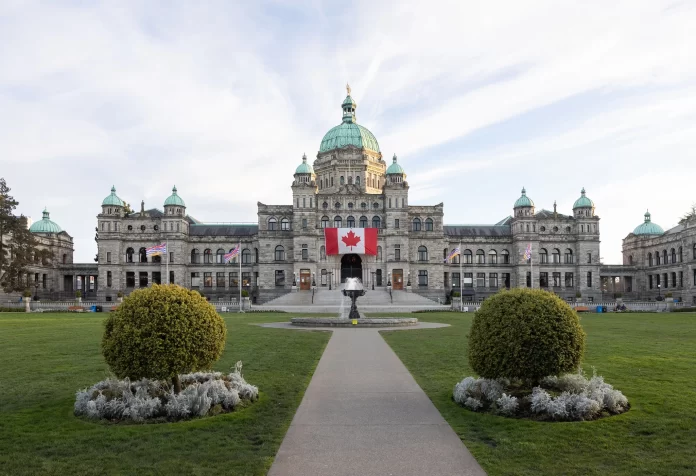Dr. Michael Batu is an associate professor in the Economics department at UFV and a former economist for the Government of Ontario.
Amid the snap elections, the U.S. boycott, and world economic conflicts, people have wondered about Canada’s future in this trade war with the U.S. The Cascade interviewed Dr. Michael Batu to better understand Canada’s challenges against the U.S. and explore potential solutions.
On Apr. 2, U.S. President Donald Trump revealed a list of tariffs imposed on imports from enemy and allied countries alike. He also raised some pre-existing tariffs, especially in places like the European Union and China, that hold a high trade deficit with the U.S. This trade war escalation was referred to as “Liberation Day.”
Batu explained what a tariff is, its protectionist nature, and appeal in political and economic contexts.
“A tariff is a consumption tax on everything that a country imports, which is meant to protect their local industries, [and] can be used as a political tool and a way for a government to collect revenue.”
This revenue would theoretically be used to invest in the country’s local industries and economic development.
“If the United States [were to] impose a tariff of 25 per cent on cars that they import from Canada, imported cars are gonna cost more if you’re an American buyer. So, I pay that extra 25 per cent that goes to the government. What the government will do in turn is, once they have this pool of money, they’re gonna use it to subsidize their local auto manufacturing to make them more competitive. In theory, it’s actually a good thing.”
Batu stated that it is essential to look at the historical context to understand why the U.S. has been imposing these tariffs. China’s entry into the World Trade Organization and the North American Free Trade Agreement (NAFTA) in the 90s contributed to the displacement of the U.S. in terms of manufacturing and exports.
“The United States has lost pretty much [all of] its manufacturing base … instead of a net exporter, they became a net importer.”
He explained how manufacturing has moved to places like Mexico, Canada, and China. When exports and imports are equal, they create a trade balance, which isn’t the case in the U.S., as they’ve had a trade deficit for a long time. Batu noted that correlating the allegedly unfair trade deals to the loss of jobs is the mindset that helped Trump win the 2016 elections.
Back then, Trump imposed tariffs on Canada in specific sectors. But the situation has escalated monumentally, as he is now imposing tariffs all over the world. The tensions continue as many countries have taken retaliatory measures — this includes Canada, who established a tit for tat rebuttal: a dollar-per-dollar counter tariff.
But Batu explained that imposing the same number of tariffs is not viable due to the size of the Canadian economy.
“Our GDP (gross domestic product) per capita is comparable to some of the poorest states in the United States. We are 10 times smaller than the United States … It’s like fighting a giant with sticks and stones. If you do a dollar-per-dollar tariff, it won’t have much of an effect on them.”
Batu thinks the tariffs should be targeted at specific states instead, especially those crucial for a Republican victory. However, he understands why Prime Minister Mark Carney needs to consider the political side.
“He wants to show us that Canada is strong, that Canada will be able to respond to these threats … But the question becomes, given the size of our country, how long can we last?”
Compared to the U.S., the Canadian composition of trade regarding exports isn’t diversified. According to the Observatory of Economic Complexity (OEC), as of 2023, the U.S. exports 14.5 per cent of their goods to Canada, whereas Canada exports 71.4 per cent to the United States.
Trump announced a pause on the tariffs for 90 days — only a few hours after imposing them — but this instability has pushed investors to look for alternative partners. Batu thinks Canada should also look elsewhere; he heavily criticized the government decisions over the past 100 years that have taken Canada to a point of dependency.
“They’ve become too reliant in the United States … It’s all of the leaders that we’ve had for the last century. That’s why we’re here.”
Batu believes there’s a sense of hypocrisy in how many citizens and politicians are showing their patriotic stance against the U.S. and urges people to remember that the elite have been the ones benefitting throughout the years.
“To me, if there’s any fight, it’s not between left and right, my friend. It’s between up versus down.”


